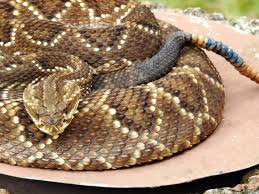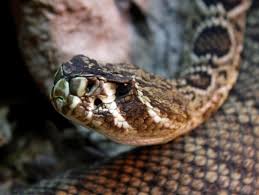Could someone develop an immunity to poison?

March 17, 2021
It’s a trope that’s been commonly used in the media, fashioning the concept that if someone were to expose themselves to small amounts of what would otherwise be deadly, they could build up some sort of immunity. The Princess Bride used a similar idea during the battle of wits, with Westley revealing that no poison such as the one Vizzini used could harm him. He claimed to have developed an immunity. Even an ancient king, Mithridates VI of Pontus, was so concerned with being poisoned that he sought to develop an immunity (either through consuming some sort of cure-all an titoxin or ingesting small doses of poison over a lifetime, sources vary). So can someone truly become immune to poison and, if so, why?
titoxin or ingesting small doses of poison over a lifetime, sources vary). So can someone truly become immune to poison and, if so, why?
 titoxin or ingesting small doses of poison over a lifetime, sources vary). So can someone truly become immune to poison and, if so, why?
titoxin or ingesting small doses of poison over a lifetime, sources vary). So can someone truly become immune to poison and, if so, why?Now to first examine this, we’d need to look at the overall concept of tolerance. Building up a tolerance to poison, such as that mentioned above, can be extremely dangerous. Ingesting any sort of toxin, even in small amounts, could be deadly (bear in mind that Mithridates came from a time in history where the science behind medicine was uncharted territory, and the events of The Princess Bride are fictional). The closest thing to surviving poison we can see today, would be in genetic tolerance or the science behind the creation of antivenoms.
Genetic tolerance to poison is something extremely rare. However, it’s not something of fiction. In certain remote villages in the Andes, people have been found to have built up a genetic tolerance to arsenic. Groundwater laced with the poison made individuals with a certain gene mutation more likely to prosper. The mutation flushed out the toxins faster than the average person, leading to its spread. Don’t get too excited though, all of this took about a few centuries (and even then, not the entire population was affected).
But what about antivenoms? If people can develop antivenom for the poison behind snakebites, could there be some sort of a way to develop one big remedy for every known poison?
Well, here’s the thing about antivenoms: while they are effective, they are extremely difficult to make. Most of the time when someone is bitten by a venomous snake, they die because they aren’t able to get access to the proper antivenom in time. Life and death is more dependent on a person’s ability to get to a hospital on time, and a matter of luck that the hospital has that antivenom in stock.
So why can’t people just make more antivenom?
Antivenoms w ork by boosting someone’s immune system in order to respond to a specific poison. This actually works in a similar way to a vaccine. Antibodies for a particular venom are used to help someone combat its effects. These antibodies can only be obtained by capturing several venomous snakes, milking them for their venom, and then injecting a small amount of that venom into a donor animal (such as a horse or sheep). These animals have stronger immune systems, so they are able to survive the effects of the venom and produce antibodies. (So I suppose there is some truth to the saying “healthy as a horse”.) The process of creating antivenom is extremely arduous, as it can take years of collecting and caring for snakes before enough venom can be collected to actually begin the process of making an antivenom. So it’s difficult to believe that some sort of antidote for all poisons can be made, especially considering that the science of antivenoms has been around for about a century but cannot be effectively distributed.
ork by boosting someone’s immune system in order to respond to a specific poison. This actually works in a similar way to a vaccine. Antibodies for a particular venom are used to help someone combat its effects. These antibodies can only be obtained by capturing several venomous snakes, milking them for their venom, and then injecting a small amount of that venom into a donor animal (such as a horse or sheep). These animals have stronger immune systems, so they are able to survive the effects of the venom and produce antibodies. (So I suppose there is some truth to the saying “healthy as a horse”.) The process of creating antivenom is extremely arduous, as it can take years of collecting and caring for snakes before enough venom can be collected to actually begin the process of making an antivenom. So it’s difficult to believe that some sort of antidote for all poisons can be made, especially considering that the science of antivenoms has been around for about a century but cannot be effectively distributed.
 ork by boosting someone’s immune system in order to respond to a specific poison. This actually works in a similar way to a vaccine. Antibodies for a particular venom are used to help someone combat its effects. These antibodies can only be obtained by capturing several venomous snakes, milking them for their venom, and then injecting a small amount of that venom into a donor animal (such as a horse or sheep). These animals have stronger immune systems, so they are able to survive the effects of the venom and produce antibodies. (So I suppose there is some truth to the saying “healthy as a horse”.) The process of creating antivenom is extremely arduous, as it can take years of collecting and caring for snakes before enough venom can be collected to actually begin the process of making an antivenom. So it’s difficult to believe that some sort of antidote for all poisons can be made, especially considering that the science of antivenoms has been around for about a century but cannot be effectively distributed.
ork by boosting someone’s immune system in order to respond to a specific poison. This actually works in a similar way to a vaccine. Antibodies for a particular venom are used to help someone combat its effects. These antibodies can only be obtained by capturing several venomous snakes, milking them for their venom, and then injecting a small amount of that venom into a donor animal (such as a horse or sheep). These animals have stronger immune systems, so they are able to survive the effects of the venom and produce antibodies. (So I suppose there is some truth to the saying “healthy as a horse”.) The process of creating antivenom is extremely arduous, as it can take years of collecting and caring for snakes before enough venom can be collected to actually begin the process of making an antivenom. So it’s difficult to believe that some sort of antidote for all poisons can be made, especially considering that the science of antivenoms has been around for about a century but cannot be effectively distributed.Building up a tolerance to poison is extremely dangerous and is mostly dependent on winning a genetic lottery, and the creation and mass production of antidotes for poisons could take years. So overall, the idea that someone could become immune to poisons (either through tolerance or antidote) is unlikely. One might even say it’s inconceivable!
SOURCES
-https://www.who.int/snakebites/antivenoms/en/#:~:text=For%20more%20than%20100%20years,or%20sheep%20with%20snake%20venoms.
-https://www.ancient.eu/article/906/mithridates-poison-elixir-fact-or-fiction/https://www.wired.co.uk/article/genetic-immunity-to-arsenic
-https://www.zmescience.com/ecology/animals-ecology/antivenom-made-precious/
-https://www.smithsonianmag.com/smart-news/centuries-poison-laced-water-gave-these-people-tolerance-arsenic180954491/#:~:text=Some%20citizens%20of%20a%20remote,arsenic%2C%20a%20new%20study%20shows&text=Any%20crime%20drama%20connoisseur%20can,organ%20failure%20and%20cardiac%20arrest
